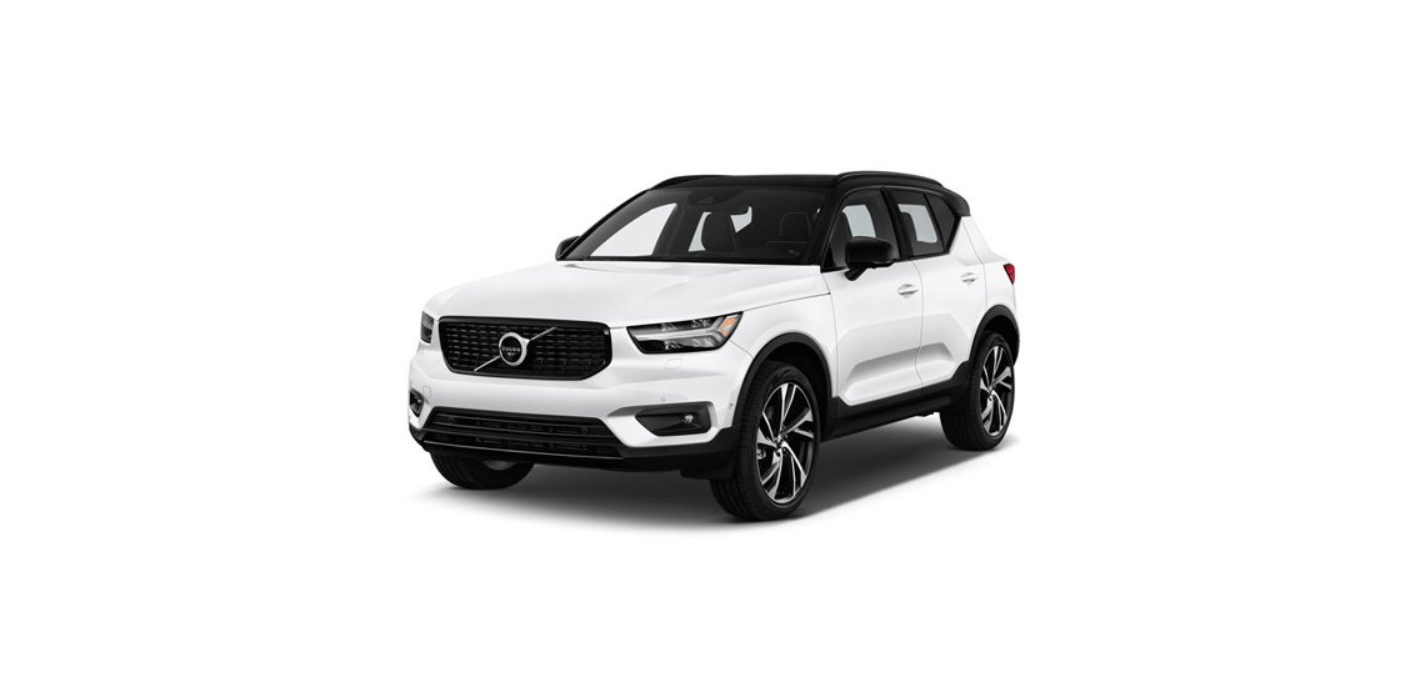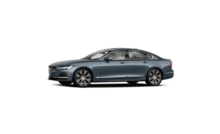The child lock can be either manual or electrical.
Manual child lock
Use the key’s detachable key blade to turn the knob.
| A | The door is blocked against opening from the inside. |
| B | The door can be opened from both the outside and the inside. |
Note
- A door’s knob control only blocks that particular door – not both rear doors simultaneously.
- Cars with an electric child safety lock do not have a manual child lock.
Electric child lock
The electric child lock can be activated and deactivated in all ignition positions above 0. Activation and deactivation can be performed up to 2 minutes after switching off the car, provided that no door is opened.
Rear child safety lock enabled
When the lamp in the button is illuminated, the child safety lock is enabled.
If the child lock is activated when the car is switched off, it will remain activated the next time the car is started.
- Rear doors cannot be opened from the inside.
- Rear power windows can only be operated from the driver’s door.
Rear child safety lock disabled
When the lamp in the button is extinguished, the child safety lock is inactivated.
- Rear doors can be opened from the inside and power windows operated from the rear seat.
Symbols and messages
| Symbol | Message | Specification |
|---|---|---|
| | Rear child lock Activated | The child lock is activated. |
| | Rear child lock Deactivated | The child lock is deactivated. |
Child safety
Children must always sit secure while travelling in the car.
Volvo has child safety equipment (child seats and attachment devices) which is designed for fitting in this particular car. Using Volvo’s child safety equipment, you obtain good conditions for a child to travel safely in the car. In addition, the child safety equipment fits in well and is simple to use.
The equipment that should be used is selected taking account of the weight and size of the child.
Volvo recommends that children travel in a rear-facing child seat until as late an age as possible, at least until 4 years of age, and then in a front-facing child seat until the child is 140 cm (4 feet 7 inches) tall.
Note
Legal provisions about the type of child seat that must be used for children of different ages and heights vary from country to country. Check what does apply.
Note
When using child safety equipment, it is important to read the installation instructions included.
In the event of questions when fitting child safety equipment, contact the manufacturer for clearer instructions.
Children of all ages and sizes must always sit correctly secured in the car. Never allow a child to sit on the knee of a passenger.
Child seats
Suitable child seats should always be used when children are travelling in the car.
Children should sit comfortably and safely. Make sure that the child seat is positioned, mounted and used correctly.
Look in the installation instructions for the child seat for the correct fitting.
Note
When using child safety equipment, it is important to read the installation instructions included.
In the event of questions when fitting child safety equipment, contact the manufacturer for clearer instructions.
Note
Never leave a child seat loose in the car. Always secure it according to the instructions for the child seat, even when it is not in use.
Note
Observe caution when fitting child restraint systems so that sharp edges or protruding parts of the child restraint system do not scratch the interior of the car.
Long-term installation and use of child seats may cause wear and tear on the car’s fittings. Volvo recommends using the kick guard accessory to protect the car’s fittings.
Note
For child restraint systems where the child uses the car’s integrated seatbelt, read the owner’s manual’s recommendations about seatbelts.
Activating and deactivating passenger airbag
The passenger airbag can be deactivated if the car is equipped with a switch, Passenger Airbag Cut Off Switch (PACOS).
The switch for the passenger airbag is located on the passenger end of the instrument panel and is accessible when the passenger door is open.
Check that the switch is in the required position.
Warning
If the car is not equipped with a switch to activate/deactivate the passenger airbag, the airbag will always be activated.
Activating passenger airbag
- Pull the switch outward and turn from OFF to ON.
The driver display shows the message Passenger airbag on Please acknowledge.
Note
If the passenger airbag has been activated/deactivated with the car in ignition position I or lower, a message is shown in the driver display and the following indicator in the roof console approx. 6 seconds after the car’s electrical system has been set in ignition position II.
Confirm the message by pressing the right-hand steering wheel keypad’s O button.
A text message and a warning symbol in the roof console indicate that the airbag for the front passenger seat is activated.
Warning
Never use a rear-facing child seat on the front passenger seat when the airbag is activated.
The passenger airbag must always be activated when front-facing passengers (children and adults) are sitting in the front passenger seat.
Failure to follow the advice given above can endanger life or lead to serious personal injury.
Deactivating passenger airbag
- Pull the switch outward and turn from ON to OFF.
The driver display shows the message Passenger airbag off Please acknowledge.
Note
If the passenger airbag has been activated/deactivated with the car in ignition position I or lower, a message is shown in the driver display and the following indicator in the roof console approx. 6 seconds after the car’s electrical system has been set in ignition position II.
Confirm the message by pressing the right-hand steering wheel keypad’s O button.
A text message and a symbol in the roof console indicate that the airbag for the front passenger seat is deactivated.
Warning
Front-facing passengers (children and adults) must never sit on the passenger seat when the airbag is deactivated.
Failure to follow the advice given above can endanger life or lead to serious personal injury.
Important
If the passenger airbag is deactivated, the electric seatbelt tensioner on the passenger side will also be deactivated.




